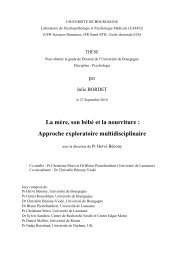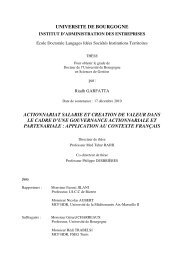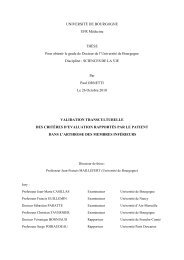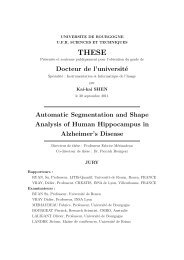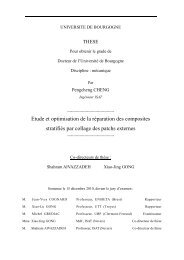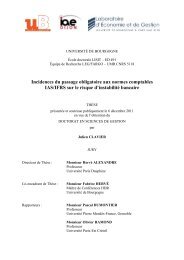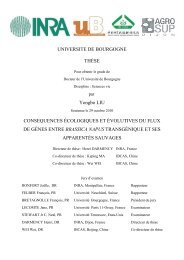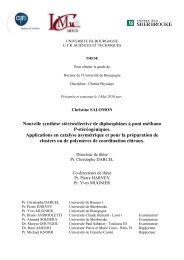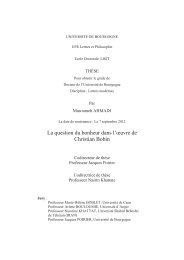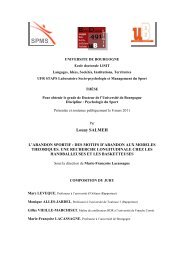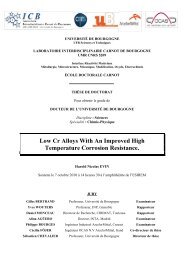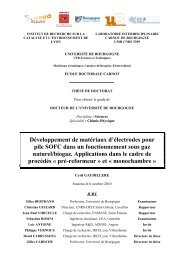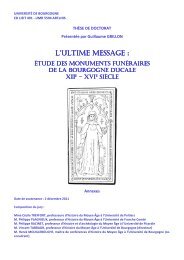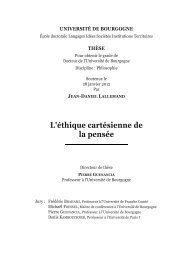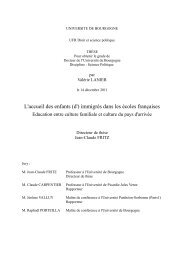Higher education in Asian countries and the role of international ...
Higher education in Asian countries and the role of international ...
Higher education in Asian countries and the role of international ...
You also want an ePaper? Increase the reach of your titles
YUMPU automatically turns print PDFs into web optimized ePapers that Google loves.
228<br />
creative learn<strong>in</strong>g, critical th<strong>in</strong>k<strong>in</strong>g, responsive curriculum, <strong>and</strong> enhanced <strong>role</strong> <strong>of</strong> <strong>the</strong> communities<br />
<strong>in</strong> <strong>the</strong> qualitative <strong>and</strong> quantitative development <strong>of</strong> <strong>education</strong>.<br />
In <strong>the</strong> wake <strong>of</strong> <strong>in</strong>creased importance <strong>of</strong> ICTs <strong>in</strong> <strong>education</strong>, <strong>in</strong> 2000, <strong>the</strong> M<strong>in</strong>istry <strong>of</strong> Education<br />
planned to ensure <strong>the</strong> provision <strong>of</strong> ICT <strong>education</strong> <strong>and</strong> <strong>education</strong> through ICTs from basic to<br />
higher <strong>education</strong> levels. To face <strong>the</strong> new challenges <strong>of</strong> <strong>the</strong> 21 st century Centers for Human<br />
Resource Development at many universities, <strong>in</strong>stitutes, <strong>and</strong> colleges started new programs.<br />
Network<strong>in</strong>g <strong>of</strong> higher <strong>education</strong> <strong>in</strong>stitutions particularly <strong>of</strong> universities is ano<strong>the</strong>r important<br />
<strong>in</strong>itiative towards capacity build<strong>in</strong>g through shar<strong>in</strong>g <strong>of</strong> ideas <strong>and</strong> resources. In this regards many<br />
universities collaborate with <strong>in</strong>ternational <strong>in</strong>stitutions <strong>of</strong> research. In 2005 government gave<br />
more autonomy to many higher <strong>education</strong> <strong>in</strong>stitutions so that <strong>the</strong>se <strong>in</strong>stitutes could act <strong>and</strong> react<br />
more swiftly <strong>and</strong> effectively to <strong>the</strong> chang<strong>in</strong>g dem<strong>and</strong>s <strong>and</strong> needs. M<strong>in</strong>istry <strong>of</strong> Education has<br />
launched <strong>the</strong> Thirty-year Long-term Education Development Plan 2001/2030 that is be<strong>in</strong>g<br />
implemented <strong>in</strong> six phases cover<strong>in</strong>g different aspects <strong>of</strong> <strong>education</strong> from basic level to higher<br />
<strong>education</strong>.<br />
The Philipp<strong>in</strong>es<br />
In <strong>the</strong> Philipp<strong>in</strong>es <strong>the</strong> reforms <strong>in</strong> <strong>education</strong> sector are aimed to make <strong>the</strong> national <strong>education</strong><br />
relevant <strong>and</strong> responsive to <strong>the</strong> rapidly chang<strong>in</strong>g needs <strong>of</strong> <strong>the</strong> society. Dur<strong>in</strong>g past few decades <strong>the</strong><br />
Department <strong>of</strong> Education has taken multiple <strong>in</strong>itiatives to improve <strong>the</strong> accessibility, relevance,<br />
<strong>and</strong> quality <strong>in</strong> <strong>education</strong>.<br />
To br<strong>in</strong>g <strong>the</strong> reforms <strong>in</strong> <strong>the</strong> <strong>education</strong> system <strong>the</strong> state commissioned three major studies on<br />
<strong>education</strong>; Congressional Commission on Education (EDCOM) <strong>of</strong> 1991, Philipp<strong>in</strong>es Education<br />
Sector Study (PESS) <strong>of</strong> 1998, <strong>and</strong> <strong>the</strong> Presidential Commission on Educational Reform (PCER)<br />
<strong>in</strong> 2000. Congressional Commission on Education <strong>in</strong> 1992 proposed different measures to<br />
improve <strong>the</strong> state <strong>of</strong> <strong>education</strong>. The creation <strong>of</strong> <strong>the</strong> Commission on <strong>Higher</strong> Education (CHED),<br />
<strong>in</strong> 1994, was a part <strong>of</strong> <strong>the</strong> reform process at higher <strong>education</strong> level. The CHED has taken<br />
<strong>in</strong>itiatives to ensure <strong>the</strong> quality <strong>of</strong> <strong>in</strong>puts <strong>and</strong> programs at higher <strong>education</strong> <strong>in</strong>stitutions <strong>in</strong> order to<br />
assure overall quality. Teacher capacity development has been given a special attention through<br />
pre-service <strong>and</strong> <strong>in</strong>-service tra<strong>in</strong><strong>in</strong>g programs. Likewise more autonomy <strong>and</strong> liberty has been<br />
given higher <strong>education</strong> <strong>in</strong>stitutions. As a result <strong>of</strong> <strong>the</strong> Presidential Commission on Educational<br />
Reform (PCER) <strong>in</strong> 2000 <strong>the</strong> <strong>education</strong> sector was fur<strong>the</strong>r restructured <strong>and</strong> reorganized at



